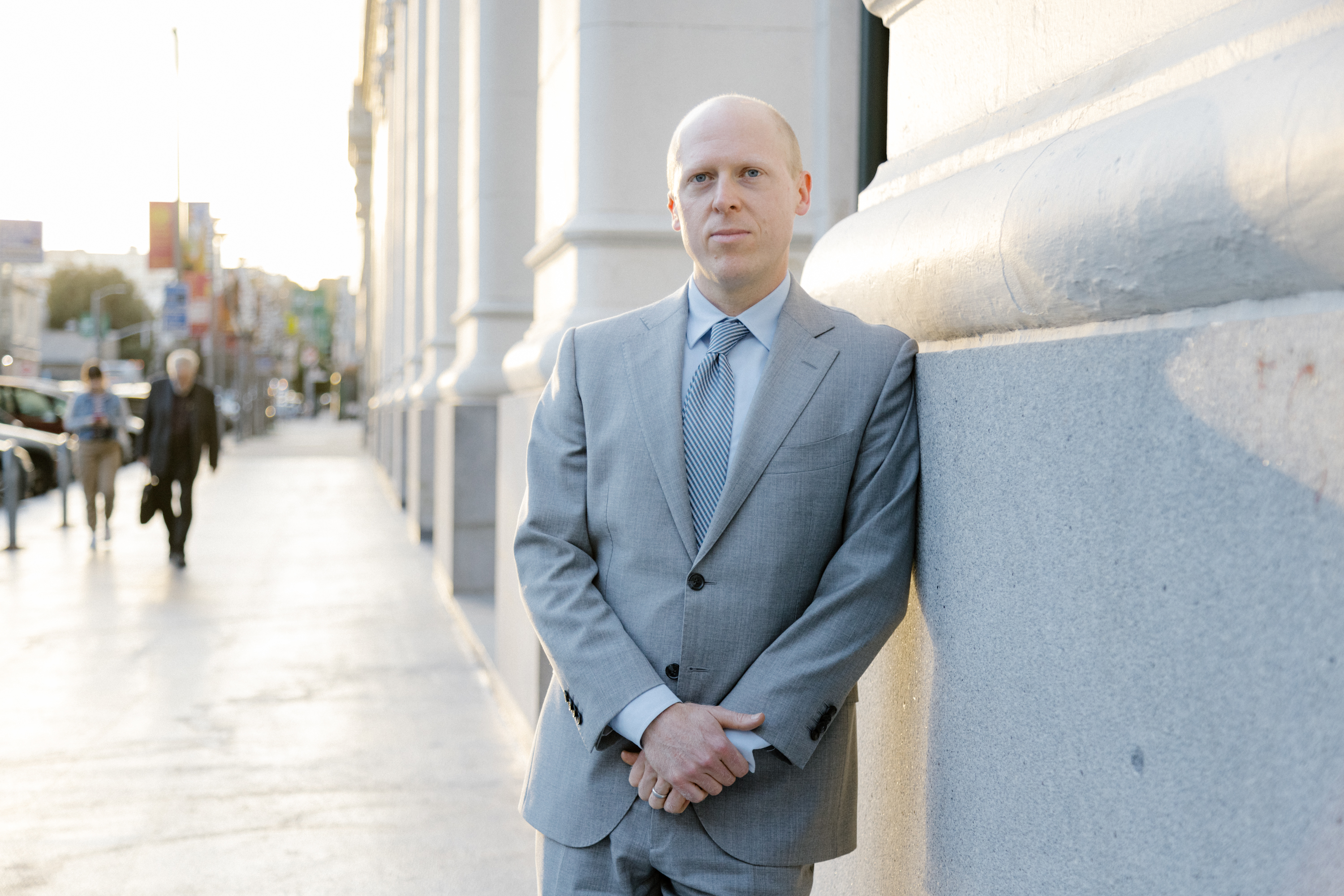Less than three weeks after his promotion to executive director of the San Francisco Ethics Commission, Patrick Ford is itchy to get to work—and he already has his sights set on one massive loophole being exploited for the March 5 primary election.
Campaign contributions for mayor and supervisor candidates in San Francisco are capped by local law at $500 per election cycle, but people running for a seat on the local Democratic County Central Committee (DCCC)—the group that decides priorities and endorsements for the local party—can accept contributions of any denomination, leading to contributions in the thousands if not tens of thousands. As a result, the campaigns to serve on the relatively obscure political board have combined to raise more than $1.6 million.
“I think this is one of the single biggest problems that we have,” Ford told The Standard in an interview last week.
As the new leader of the Ethics Commission, Ford has one of the most important roles in the city, especially in an election year. The commission is tasked with processing and publishing a huge volume of campaign records, investigating reports of violations, proposing improvements in local ethics laws and rooting out corruption.
Ford has his hands full with the DCCC race, where some candidates for the little-known body are raising six-figure sums. Several DCCC candidates are also elected supervisors or are running to join the Board of Supervisors, and they have been accepting substantial chunks of money from developers, labor unions, wealthy tech execs and other special interests to pay for campaigns that could help raise their name ID among voters, whether it’s for November’s election or other races in the future.
Examples of the massive contributions to DCCC races include crypto billionaire Chris Larsen giving $50,000 to Marjan Philhour, who is challenging Supervisor Connie Chan in District 1. Tech entrepreneur Bilal Mahmood, who is running against Supervisor Dean Preston in District 5, also received $20,000 from Larsen for his DCCC bid.
Money is the name of the game in political campaigns, but the huge sums for DCCC campaigns are raising eyebrows. For example, Mahmood has raised $225,000, while Philhour’s war chest is over $195,000, according to the Ethics Commission’s campaign fundraising dashboard.
“I have run for office three times, and I have lost each time,” Philhour told The Standard. “Something is keeping me going, and it’s not money. I am committed to the future of our city.”
Supervisor Matt Dorsey—whose district includes the South of Market area—has accepted $5,000 from One Vassar LLC, a developer of multiple high-rise buildings on Harrison and Second streets, as well as $5,000 from strip club impresario Joe Carouba. Dorsey isn’t up for reelection until 2026, but the fundraising is far outside the norm of what would be allowed in a race for supervisor.
Neither Mahmood nor Dorsey responded to requests for comment for this story.
Making matters more complicated, Ford said, winning candidates for DCCC can funnel any leftover campaign funds into officeholder accounts that can be used for official Democratic Party business, which could lead to people using the money as personal piggy banks for meals, hotels and flights, a la disgraced former Congressman George Santos.
Ford, who has been with the Ethics Commission since 2017 and most recently served as the lead of the enforcement division, said he raised the issue of unlimited DCCC fundraising in San Francisco with the Fair Political Practices Commission—the state’s political watchdog—but he was told that the city’s “hands are tied by state law.”
“I think it is a huge problem,” Ford said of the unlimited contributions to DCCC candidates who are also running for supervisor.
The unlimited sums of money give these candidates the ability to run simultaneous ad campaigns that can make an impression for November’s election.
“The law is just not matching reality here,” Ford said, “and it’s undermining the very purposes of these rules.”
As far as first impressions go, Ford comes across as polite and unassuming. Inside the Ethics Commission’s headquarters on Van Ness Avenue, he has a small office with bare walls and a small window overlooking a nondescript alleyway.
On the note of San Francisco being a city rife with corruption, Ford said it’s “not a baseless” impression.
“I think that the vast majority of people who work here for the city government are ethical,” Ford said. “But, unfortunately, incidents do happen. And luckily, some of them do get caught and come to the public light. The downside of that is that it creates a really bad connotation for city government. That makes it harder to do our jobs. It makes it really hard when people don’t trust us.”
While the office has a basic administrative function, the enforcement side of operations appears to be something Ford—who joined the office in 2017 after working in corporate law—will push forward now that he’s in charge. The Ethics Commission does have subpoena power,
“There have been many instances where reporting in The Standard, or other publications, breaks the story and we follow up on those,” Ford said. “We can initiate our own cases. We don’t have to wait to get a complaint from members of the public. So, if we see a journalist who says, ‘Hey, I have found something here,’ and they write about it, we look into it. Absolutely.”
For those having trouble reading between the lines: Send tips.
